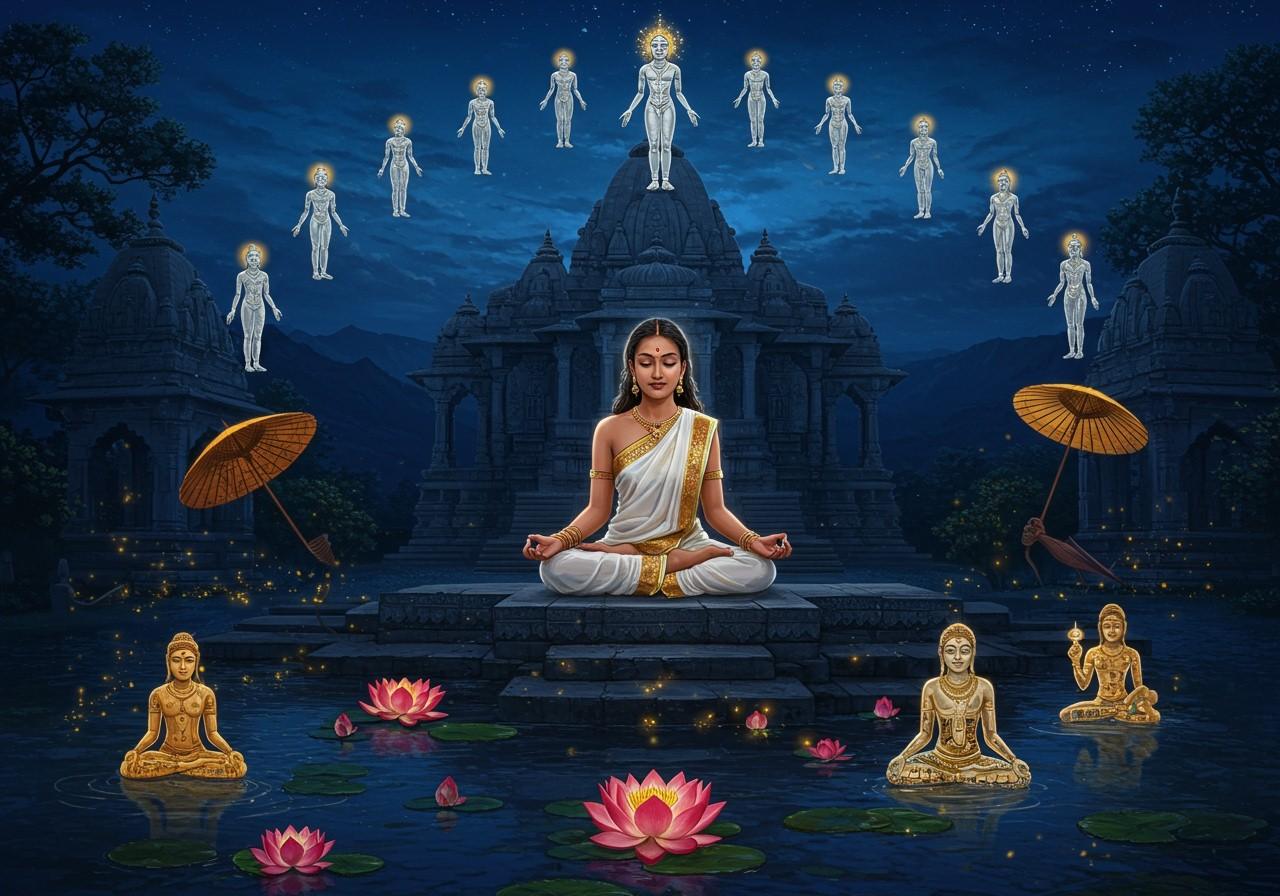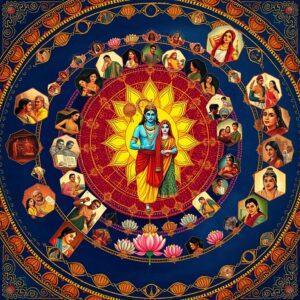
The epic poem Manimekalai holds a significant place in Tamil literature, composed by Seethalai Sathanar around the 6th century AD. A sequel to the renowned Silappatikaram, Manimekalai follows the spiritual journey of the heroine, offering profound insights into Buddhist philosophy, despite subtle undertones of Jainism. The epic is celebrated for its rich imagery and imaginative language, exploring various religious beliefs and philosophical concepts through a diverse cast of characters. This exploration delves into the core of Manimekalai’s Buddhist themes and their relevance today.
Manimekalai’s Narrative and Buddhist Ideals
Manimekalai’s narrative centers on the heroine’s transformation and spiritual quest. Set against the backdrop of ancient Tamil kingdoms, the epic weaves a vibrant tapestry of the era’s cultural, social, and religious life. Manimekalai’s journey from a courtesan to a devout Buddhist showcases her pursuit of enlightenment and the core tenets of Buddhism. The poem intricately details Buddhist practices, beliefs, and the emphasis on compassion and non-violence.
Buddhist Philosophy in Manimekalai
Manimekalai prominently features Buddhist principles. Buddhism, originating in ancient India, emphasizes the Four Noble Truths, addressing the nature of suffering and the path to liberation. Manimekalai’s journey reflects these truths as she seeks spiritual awakening. The epic highlights key Buddhist concepts such as:
- Karma and Rebirth: Manimekalai’s experiences and choices emphasize the Buddhist concept of karma and the cycle of birth and rebirth, urging mindful actions and their consequences.
- Meditation and Mindfulness: The epic portrays the significance of meditation and mindfulness in achieving spiritual growth and inner peace, aligning with Buddhist practices.
- Compassion and Non-Violence (Ahimsa): Manimekalai’s growing compassion and adherence to non-violence are central to her spiritual development, mirroring the core Buddhist value of ahimsa.
Manimekalai’s Spiritual Transformation
Manimekalai’s transformation from a courtesan to a spiritual seeker is a pivotal aspect of the epic. Guided by Buddhist monks and teachings, she navigates internal struggles and embraces Buddhist values. The epic portrays her renunciation of worldly pleasures and her unwavering dedication to truth and non-violence, illustrating the Buddhist path to liberation. Manimekalai’s journey also explores the challenges she encounters while adhering to Buddhist principles in a complex society.
Cultural and Historical Significance
Manimekalai provides invaluable insight into the cultural and social landscape of a time when Buddhism flourished in the Tamil region. It reflects the interplay of various religious communities and the syncretic nature of Tamil spirituality. The epic’s portrayal of Buddhism is crucial to understanding the religion’s historical influence in South India. Furthermore, Manimekalai sheds light on the role of women in religious and spiritual pursuits during the 6th century AD.
Relevance for Contemporary Readers
Manimekalai’s themes of non-violence, compassion, and self-discovery resonate deeply with contemporary readers. The epic’s exploration of spiritual growth and moral clarity offers valuable lessons for today’s world. Manimekalai’s journey provides inspiration for those seeking meaning and purpose in life, regardless of their religious background. The epic’s portrayal of Buddhist philosophy provides a deeper understanding of its core principles and their practical application in daily life.
Poojn.in: Supporting Your Exploration of Buddhist Traditions
For those inspired by Manimekalai’s Buddhist themes, poojn.in offers a curated selection of items to support your spiritual practice. Our collection includes:
- Authentic mala beads for meditation, crafted from natural materials.
- Incense and dhoop to create a serene atmosphere for contemplation. These aromatic offerings enhance the ambiance of your meditation space, fostering a deeper connection with your practice.
- Statues and images of Buddha for inspiration and reverence, crafted with exquisite detail.
Visit www.poojn.in to discover more resources for your spiritual journey. We offer pan-India delivery and secure packaging.
Conclusion
Manimekalai stands as a testament to the enduring power of spiritual literature. Through Manimekalai’s journey, we gain a deeper understanding of Buddhist philosophy and its relevance to contemporary life. The epic’s exploration of compassion, self-discovery, and the pursuit of enlightenment continues to inspire readers centuries later, promoting a path towards a more meaningful and compassionate existence.


